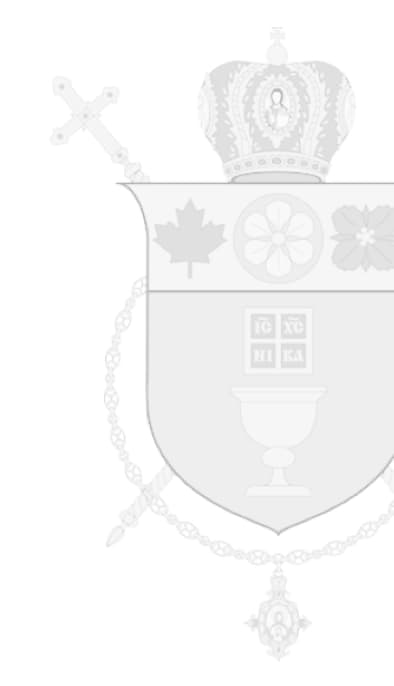
Courses
The Sheptytsky Institute offers a wide array of courses in Eastern Christian theology, history, liturgy and spirituality. Some courses are offered in alternate years.
As part of their programs, Sheptytsky Institute students also take USMC courses, as well as courses in other colleges in the Toronto School of Theology (TST) ecumenical consortium.
All courses taught by Sheptytsky Institute faculty take place at Sheptytsky Institute, Windle House, 5 Elmsley Place, on the campus of the University of St. Michael’s College in Toronto.
For a listing of courses for the current and upcoming academic year, please visit the TST website.
-
The course aims at a general introduction to the four families of Eastern Churches: Eastern Orthodox, Oriental Orthodox, Eastern Catholic and the Assyrian Church of the East. After reviewing the history of the Eastern Churches and the critical moments that shaped their development (including schisms, attempts at re-union and the impact of Islam), the course will give particular attention to the history and culture of the Assyrian Church of the East, the Coptic and Armenian Orthodox Churches, the Orthodox Churches of Ukraine, Greece and Russia, the Maronite, Melkite and Ukrainian Greco-Catholic Churches. Subsequently, the course will briefly survey the East's distinctive approaches to liturgy, art, architecture, music, spiritual life, monasticism, social service, hagiography, mission and theology. The course ends with an assessment of the current state of these Churches in North America and their approaches to inter-Christian and interreligious relations.
- Date: Mon, Wed, Fri
- Time: 10:00-13:00
- Instructor: TBA
- Location: St. George Campus
-
A survey of both patristic and contemporary approaches to Christological questions (how the divinity and humanity of Christ come together in one person). Soteriological questions will also be addressed (what is salvation, how Jesus saves, from what and for what He saves}. This will also necessitate some examination of Theological Anthropology (from creation according to the Divine Image to the fulfillment of likeness to God in Theosis/Divinization) and the human condition that requires an Incarnate Saviour. Comparisons will be made among ancient Christological approaches (Alexandria, Antioch, Rome), as well as between Eastern and Western Christian understandings of the means and the content of salvation. Emphasis will be placed on apophatic and antinomic tools for articulating an understanding of Christ the Saviour that operates coherently within the complex of the elements of Holy Tradition (Scripture, Fathers, Councils, Creeds, Liturgy, Iconography, Hagiography, etc.)
- Date: Mondays
- Time: 19:00-21:00
- Instructor: TBD
- Location: Remote Delivery
